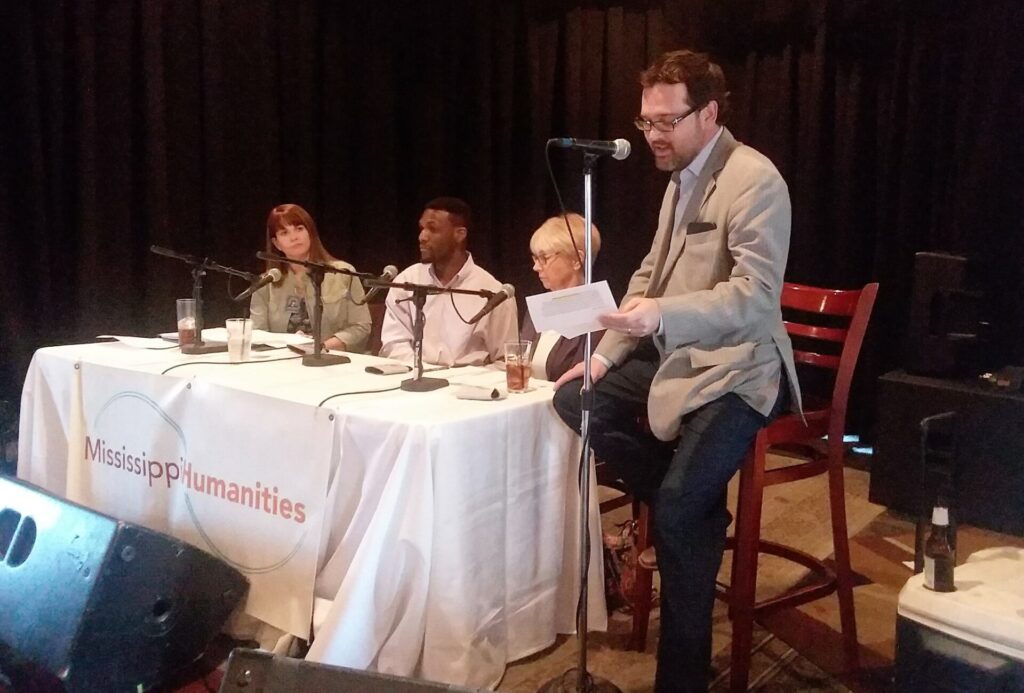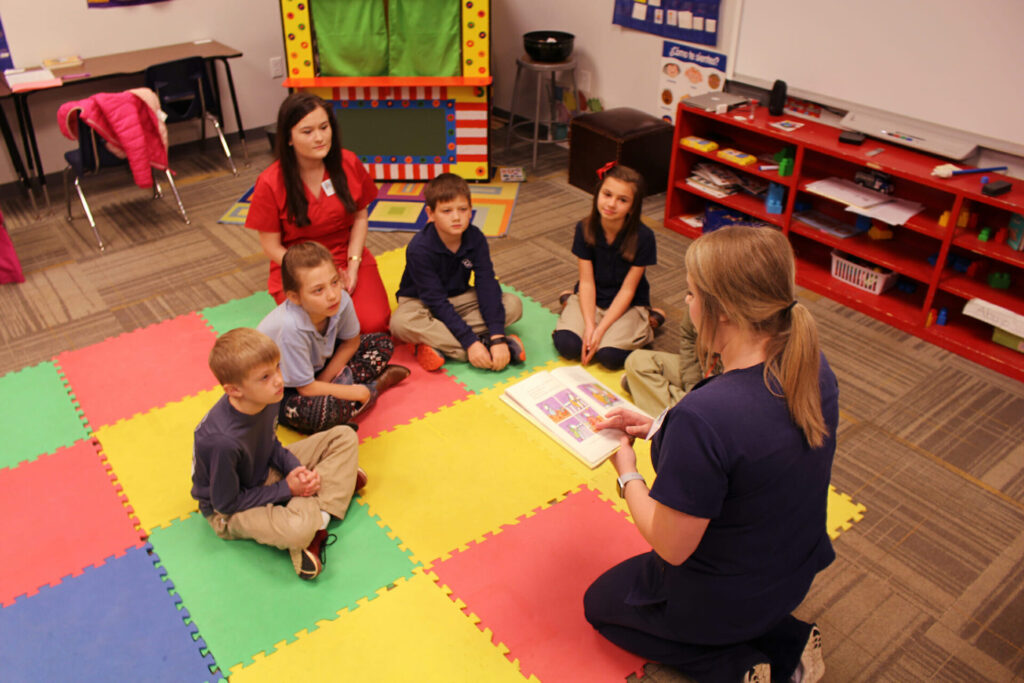Featured
‘Ideas on Tap’ Focuses on Local, State Early Childhood Development

Lafayette County Supervisor Kevin Frye (far right) moderates a discussion on early childhood education Thursday at Proud Larry’s. Panel members were, from left, Tamara Hillmer, Michael Cormack and Cathy Grace. Photo by Alyssa Schnugg.
By Alyssa Schnugg
Staff writer
alyssa.schnugg@hottytoddy.com
Investing in early childhood education is an investment in the LOU community’s future.
That was the general consensus last Thursday at the “Ideas on Tap: Easy as ABC? Early Childhood Learning in Mississippi” conversation held at Proud Larry’s.
Moderator and Lafayette County Supervisor Kevin Frye said early childhood development is something he personally started thinking about with the birth of his two sons.
“We’re missing some of our youngest citizens in Lafayette County,” he said. “Having a 1 and 2 year old at home, it’s something I’ve been thinking about as well as many of the people I associate with, parents who are struggling to find a place for care and navigating the options here in Lafayette County, and I began looking at what’s available in other communities and I think we have some room to improve.”
Sponsored by the Mississippi Humanities Council, the Graduate Center for the Study of Early Learning and the North Mississippi Education Consortium, the experts speaking at the event were Cathy Grace with the Graduate Center for the Study of Early Learning; Michael Cormack Jr., with the Barksdale Reading Institute and Tamara Hillmer, LOU Reads Coalition and director of the Oxford and Lafayette County Early Childhood and Reading Development Partnership.
Grace, citing a study by American economist James Heckman, said when a county invests in early childhood development there’s a 13-percent rate of return per child on that investment.

UM communication sciences and disorders graduate students Emily Reedy (in red), of Pontotoc, and Lauren Stantz (in blue), of Houston, practice reading skills with area youth in preparation for the upcoming Ready to Read Literacy Program. UM photo by Sarah Sapp.
“We have a report from the governor’s office that we have 33,000 jobs that are unfilled in Mississippi that are primarily that mid-level, supervisory position and we’re not able to fill those jobs,” she said. “We have science behind this. The highest rate of return is when you invest in the very early years. Heckman’s study is based on 40 years of research and it shows that children who receive early childhood education have better health, they finish school, stay out of prisons and have an overall productive life. The county is by-and-large a great deal further ahead than our state.”
A child’s first “teacher” is his or her parents and while the state looks at ways to improve early childhood education in daycares and preschools, providing assistance to parents is also essential, according to Cormack.
“At the Barksdale Reading Institute, we developed a program, Parenting Academy, where we host six evening sessions on things parents can do at home to suppose early literacy to ensure every child is ready for kindergarten,” Cormack said. “We want to level the playing field for all children as early as possible. When parents are equipped with the right information they are eager to engage the most helpful practices at home.”
While there are established groups in Oxford and Lafayette County focused on early childhood education, like Excel by 5 and LOU Reads, Hillmer said there’s still work to be done.
According to recent scored from the Kindergarten Readiness Assessment, the average score is 530 for a student to be deemed kindergarten ready. In Lafayette County, the average score in 2017 was 515 and in Oxford, it was 522.
Grace said the local government in Petal, Mississippi has set aside a half mil toward early childhood education and has established a large parent center. In Lafayette County, a half mil brings in about $300,000.
“It is an expectation there that they will support their young children,” she said.
Hillmer said a big barrier for the LOU community to overcome is accessibility and equity.
“We have been looking funding sources to make sure all students have access to proper early education,” she said. “We’ve had lots of collaborative conversations with our Head Start Centers … making sure we’re coming together and speaking the same language and having the same goals.”










































